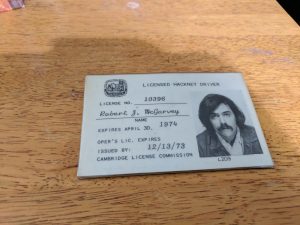Politics and Your Travels
By Robert Mcgarvey
New research from the Chief Marketing Officer Council’s GeoBranding Center and AIG Travel slaps me in the face with the unexpected. Just 8% of us take politics, ethics, human rights, and prejudices into account when choosing a destination.
92% do not apparently give a fig about ethics or decency when picking a destination.
Color me shocked.
About one fourth of the planet consists of places I would not go due to politics – Tibet, Burma, Sudan, Syria, Honduras, Saudi Arabia among them.
Nor would I stay at a Trump hotel. I would not even go to a meeting in one.
I do not seek to impose my views on others. But they are my views and I try to live them.
Part of living them is knowing where I won’t go.
Where won’t you go?
My list doesn’t have to be yours. But we all need a list of where we won’t go. And we need to know why we won’t.
Some years ago, much of the world united in boycotting South Africa. That included travel. And when the country changed, the boycott ceased.
Some need similar today, Why isn’t it happening?
Ethics are not the province of a political party or creed or nation. But ethics also are quite clear cut. There usually isn’t much doubt or indecision. Some place or somebody is good, or bad, and that is that.
As Socrates said the unexamined life is not worth living and core to living an examined life has to be integrating ethics into our decisions.
There are some countries and places that just are wrong. And I don’t want to support them with my time, presence, or money.
Security, stability and friendliness of a location rank as important to 36% of us in making travel choices, although I admit to some puzzlement how so many more say they value stability and security than ethics.
Safety matters, absolutely. I would not go to Pakistan not because it is too lacking in ethics but because it just is too dangerous for me. Its ethics are borderline but I don’t want to go there because of the lack of safety. If it were safer I’d have to give a harder think to ethics. But I don’t have to.
More puzzlement is that many in this poll cited anxieties about dangers as a top detractor to travel.
But maybe dangers to others – because of ethnic, religious or political differences – just aren’t a worry to some.
Nearly 50% of travelers told the pollsters that the internet and device connectivity make travel better and I agree but part of that better, in my mind, is more knowledge. Including knowledge about ethics and local conditions.
34% say that loyalty programs and perks matter when making travel decisions and that suggests a cruel dictatorship with a lavish loyalty program just might be fine for many of us.
Socrates never said ethical decision making would be easy. And of course he died because of his stubborn determination to hold to an ethical code.
Plato, Socrates’ student, enumerated four virtues- wisdom, temperance, courage and justice. When it comes to judging a place, justice has to be a paramount factor. Countries without justice are not places I want to visit.
Good news may be found on the generational front. Many millennials are keenly set on doing travel that is more responsible, more environmentally sound and, yes, more ethical. There is plenty of evidence to support the belief that millennials are rewriting the travel rules for the better, for all of us. Just look at the wave of resorts that have banned plastic straws, for instance, and there is no good reason to insist on plastic straws. But it is millennials to whom we owe thanks for getting them banned.
Maybe millennials will succeed too in bringing us all to a higher state of ethical travel.
We can all hope.

